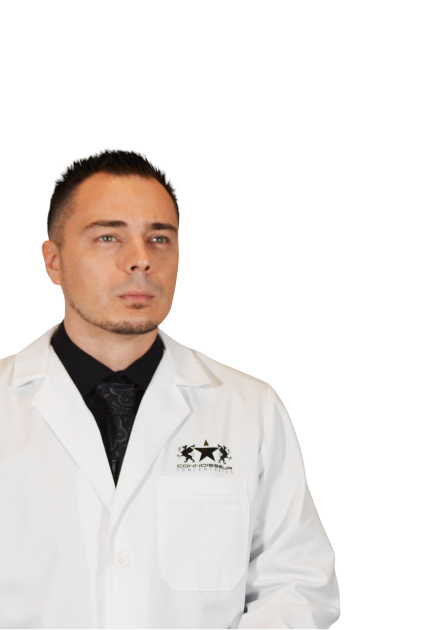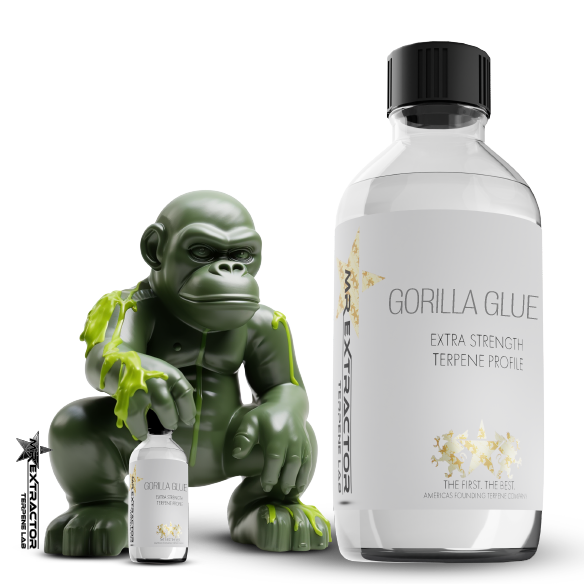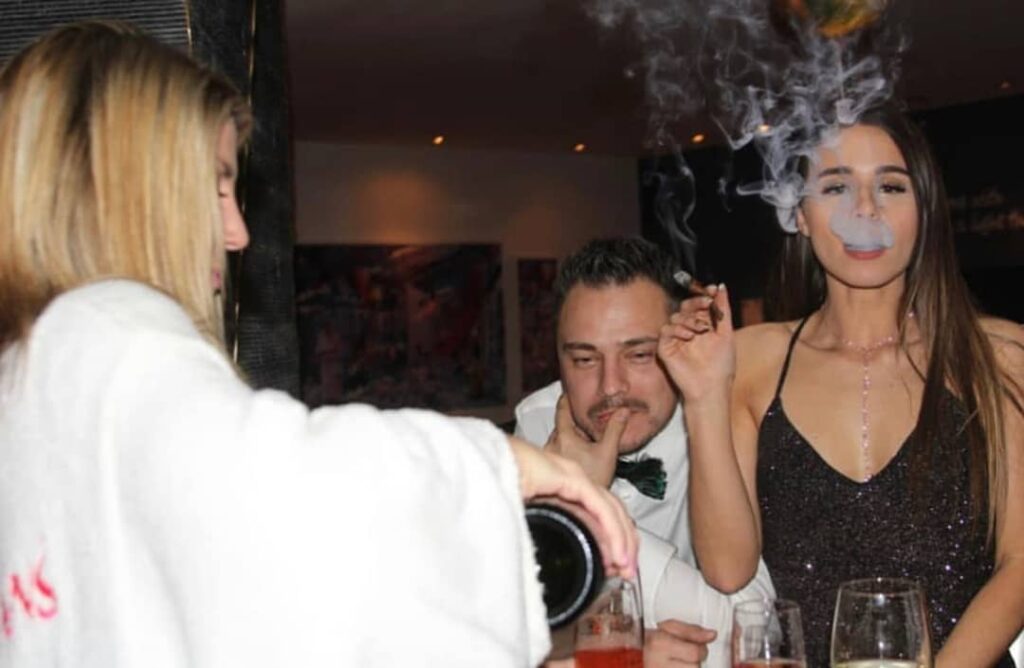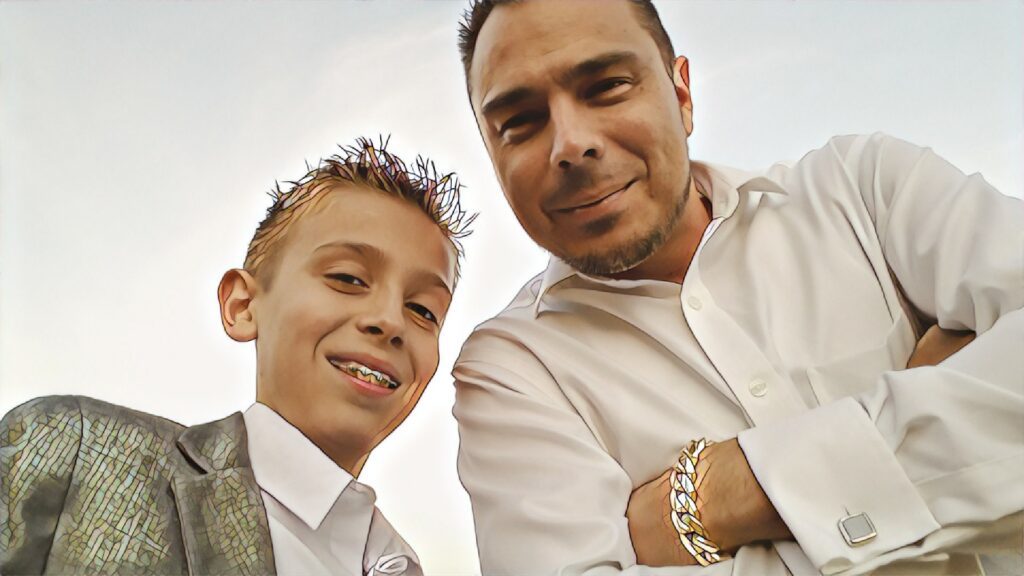
Drew Jones, CEO and Owner of MrExtractor
Favorite Strains

Use Coupon Code DREWLOVES YOU for 15% off this profile

Listening To Right Now:
Favorite Pics Right Now:



Andrew Jones
CEO - Inventor
Dual Roots in the Golden State and the Pacific Northwest
Andrew Jones’ journey began in the sunny sprawl of Southern California’s San Fernando Valley. Growing up in Burbank, his childhood was uniquely shaped by the complexities of a dual-family dynamic. Andrew’s parents were divorced, living in different cities, and he found himself traveling back and forth between them. His mother was a mechanical engineer working for the government, while his father was immersed in Hollywood’s entertainment industry as a sound technician. Later on, during his teen years, his family relocated to Portland, Oregon, a place he continues to call home alongside Los Angeles, maintaining residences in both cities to this day.
A Spiritual and Scientific Upbringing
Growing up in the contrasting worlds of two divorced parents gave Andrew a unique lens through which to view life. One home was steeped in Christian values, offering him a foundation of traditional morality and notions of good versus evil. The other home delved into a realm of spirits and symbolism, painting life in shades of gray and highlighting the interconnectedness of all things. This duality instilled in Andrew a nuanced perspective— a yin and yang of ethics, if you will. He believes that it’s this blended upbringing that has given him an unparalleled balance in life, allowing him to navigate the complexities of right and wrong with a depth of understanding attainable only through experiencing both sides of the spiritual spectrum. Alongside his moral upbringing, he developed a fascination for science, technology, and botany at a young age. The desire to understand the intricate workings of machines and grow plants became a formative experience, starting as early as his teenage years when he began dabbling in the field of botanical extractions.
Personality Traits: A Complexity that Defies Labels
Andrew describes himself as mischievous, kind, generous, sarcastic, playful, loving, and serious. He’s a man who doesn’t tolerate dishonesty or unfairness. Thoughtful and innovative by nature, he tends to be mildly antisocial due to his intellectual pursuits, gravitating towards a smaller circle of trusted friends. Andrew values the closeness of a few reliable people over the company of a crowd, sharing that everyone within his inner circle is someone with whom he’d trust his life.
Trials, Troubles, and Turning Points
In his earlier years, Andrew concedes he got into a “ton of trouble.” Yet by the age of 17, he’d managed to turn the page on that chaotic chapter of his life, never getting in trouble again. This period served as a transformative period of history, shaping his character and bestowing him with invaluable life lessons that would later guide his path. This chapter includes a riveting tale involving the FBI, the ATF, premonitions, ghosts, and other elements so extraordinary, you’d scarcely believe them—but that’s a captivating story best saved for another day. This period of turbulence became a transformative phase that molded his character, teaching him life lessons that would inform his future.
The Working Man’s Conundrum
The conventional job market was never a fit for Andrew. Over his lifetime, he’s only held approximately five jobs, none of which satisfied his expectations of work ethic or intellectual engagement. Whether being let go for exceeding the expectations of what he perceived to be lackluster bosses or leaving jobs because he deemed his employers unintelligent, Andrew quickly realized the traditional employment system wasn’t for him.
An Apprenticeship and a Lifelong Passion
One of the most influential periods in Andrew’s early life came when he worked as an apprentice for Carl Hewitt in Richardson Texas. Carl operated a three-man construction company that specialized in repair jobs for their church community. Under Carl’s tutelage, Andrew cultivated his skills and found a love for creation and building that has stayed with him throughout his life. This love for creating and craftsmanship wasn’t just a fleeting interest but evolved into a lasting hobby.
Andrew has hand-built five of his homes and continues to be engaged in various construction projects, which he passionately shares on social media. His posts have not only been a creative outlet but also have attracted a dedicated following. This virtual community eagerly anticipates updates on “Drew’s Everyday Construction Projects,” finding inspiration and camaraderie in watching and participating in his ongoing creative journey.
A Fork in the Road at 21
Around the age of 21, Andrew Jones experienced a paradigm shift: the traditional path of working for others was not his calling. This decision coincided with a seismic shift in his health—a severe diagnosis of chronic fatigue syndrome. The onset was brutal, stemming from an allergic reaction to contrast dye used in a medical procedure for sudden deafness in his right ear. Bedridden for months, Andrew found himself unable to stand and beset by crippling panic attacks.
Chemical Sensitivity: A Double-Edged Sword
Adding complexity to his condition was an unusual symptom—acute chemical sensitivity. Even commonplace items like children’s Tylenol or being in a room with someone smoking triggered severe allergic reactions, rendering him bedridden yet again. The severity of his condition led him to lose hope, especially as he read stories of others who never managed to recover. Yet in this trying time, he found that small amounts of specific substances made him feel marginally better. Slowly but surely, he used this newfound knowledge to pick up small projects, working diligently even if it was just for an hour or two at a time.
Reconnecting with a Childhood Friend
During this challenging period, fate rekindled an old friendship with Mike Sills, who was battling cancer. Memories flooded back of their youthful days, guided by the moral compass that was Mike’s mother. Visiting Mike in Portland, Oregon, Andrew was intrigued to find six plants being grown in Mike’s backyard. Thanks to a compassionate program from the state of Oregon, Mike was permitted to grow these plants legally to aid in his cancer treatment, fully supported by his loving mother.
A Partnership Born from Adversity
This was no ordinary reunion. The duo had a history of being the experimenters, the creators, the tinkerers. So when Andrew saw the opportunity to collaborate with Mike, he didn’t hesitate. In a landscape where such activities were still considered risky and legally ambiguous, Andrew chose to stand by his friend. Partnering with Mike wasn’t just about reigniting old passions; it was a deeply personal mission for Andrew, driven by a mutual need for recovery and improvement.
The Role of a Caretaker: A Door to New Opportunities
Andrew stumbled upon a transformative revelation: one could become a caretaker for individuals with special medical needs. This role granted him certain legal rights for growing and possessing particular plants. Leveraging his years of experience, he formed a partnership with Mike and took charge of the cultivation. His expertise soon extended to other individuals with critical medical conditions. As time passed, Andrew’s health showed slow but sure improvement. Fortuitously, there were legal loopholes that made cultivation for others less risky during that period. With the high market value of botanicals, his efforts evolved into a financially sustainable operation while simultaneously benefiting those most in need.
Scaling Up: The Balancing Act of Growth and Legality
Fast forward a few years, and Andrew found himself overseeing the growth of botanicals for 15 to 20 different individuals. Amidst an environment fraught with legal complexities, especially on a federal level, he ingeniously assigned roles to friends and family as caretakers. Andrew had effectively scaled the operation at a time when even minor missteps could lead to severe legal repercussions.
The DIY Spirit: Building Solutions Where None Exist
In those days, technology for specialized cultivation was scarce. Andrew, however, never shied away from a challenge. When existing grow lights fell short, he built his own, sourcing components from local electricians. When he needed specialized cooling mechanisms, he turned to local glassblowers for materials to craft what he needed. In essence, each obstacle became an opportunity to innovate, particularly because acquiring certain tools was not just difficult but could also get you arrested.
Community and Progress: Oregon Green Free
In his ongoing quest to help, Andrew joined Oregon Green Free, a community of like-minded growers and patients. Active on the forums, he quickly ascended the ranks, sharing his expertise on cultivation and room construction. This was not merely an evolution of his skill set but a reflection of an industry in flux, steadily moving toward greater acceptance and technological sophistication.
An Entrepreneur in a Legal Grey Zone: Drew’s Next Frontier
As Drew’s experience and reputation grew within the burgeoning industry, he found himself cultivating for over 40 patients across several locations. This progression naturally led him to consider the next frontier: opening one of the state’s earliest dispensaries. At that time, dispensaries were not at all legal, but Drew, the perpetual innovator, saw this as a challenge rather than a deterrent.
The Judging Program: Navigating Legal Loopholes
Drew brainstormed an ingenious way to circumvent the existing legal obstacles. While the sale of certain plant materials was forbidden, distributing it for free was not. The trick was to charge for useful information instead. That’s when Drew crossed paths with Sarah Bennett, owner of Human Collective, one of Oregon’s pioneering dispensary programs, which happen to be near his home. Drew found her in the midst of her own struggle to navigate the uncertain landscape of dispensary laws. He discovered her sitting alone in a dimly lit office, a measure taken to conserve electricity. Recognizing an opportunity for collaboration, Drew shared his extensive experience and outlined his innovative plan. “I can bring life to your business,” he assured her. Intrigued and hopeful, Sarah agreed to work with Drew, marking the beginning of a partnership that would reshape the way both navigated the challenges of their industry.
Sarah provided Drew with a back office to launch his revolutionary “Judging Program.” Patients would pay a $50 fee to participate, receiving two complimentary samples of plant material. They’d take these home, assess their effects on their individual medical conditions, and then fill out a questionnaire. Drew would compile this invaluable data, which was, in essence, what the $50 fee granted access to. Ingeniously, Drew had found a way to navigate the legal maze.
A Groundbreaking Start: The Program Takes Off
To kick things off, Drew contacted local media and announced that he’d offer free material to any medical patient who walked through the doors of Human Collective. The next morning, a line of over 200 people had formed outside. The Judging Program was a hit, and its success would unknowingly lay the groundwork for Drew’s future ventures in the terpene business. It was yet another demonstration of Drew’s ability to turn obstacles into opportunities, solidifying his status as an innovator and pioneer in an industry still finding its feet.
Drew and Sarah: A Meeting of Minds, Yet a Divergence of Paths
Drew discovered Sarah Bennett in a dimly lit office, a setting that suggested her struggles with her own attempts at navigating the laws around dispensaries. She was trying to cut costs, even on electricity. Intrigued by her initiative yet seeing room for improvement, Drew approached her. He shared his history, his expertise, and most importantly, a plan that he believed could attract people to her struggling business. He assured her that implementing his ideas would lead to a surge in customer traffic. Sarah agreed, and they set out to share the space, each running their own programs side by side.
The Tale of Two Programs: Success and Stagnation
Drew’s program, which centered around a $50 judging initiative, took off almost immediately. Lines of participants eager to join his program seemed to stretch out the door, validating his innovative approach to legal navigation and customer needs. In contrast, Sarah’s program involved a membership fee of $800 and aimed at creating a communal space for sharing plant-based medications. However, it failed to gain the same traction. The tension in the shared space became palpable. Sarah grew increasingly jealous as her program stagnated while Drew’s flourished. Eventually, she decided the partnership was no longer viable.
Drew’s Next Chapter: The Birth of Evergreen Park
Unfazed by the end of his partnership with Sarah, Drew knew his next step was to open up his own facility to continue his successful program. Enter Evergreen Park, a new business strategically positioned on Main Street, a location that wasn’t particularly welcoming to this type of enterprise. Despite the local skepticism, Drew persisted. Not only did Evergreen Park continue the judging program, but Drew also founded a secondary company, MyConnect. This innovative service sought to connect growers with patients, effectively continuing the work that had made his earlier program a hit.
The Challenges of Main Street: Legal Battles and Intricacies
Despite the booming business and physical appeal of Evergreen Park—hand-built by Drew himself—the location attracted constant scrutiny from law enforcement. Drew found himself in the exhausting position of having to deal with undercover officers seeking to entrap him. The relentless stress began to outweigh the joy he found in innovation and helping patients. A man well-versed in picking his battles, Drew concluded it was time to fold his cards. Evergreen Park was shut down, and he decided to channel his energies into new ventures.
The Final Note: The Ironies and Lessons of Life
After ending his chapter in Dispensary life, Drew discovered the fate that had befallen Sarah Bennett and her Human Collective venture. Despite Drew having highlighted some legal vulnerabilities in her program, Sarah was steadfast in her approach and resisted any external advice. This was a primary reason Drew never integrated his operations with hers, opting to walk his own path instead. Later, news of her arrest and the unraveling of her company reached him, bringing a sense of mysterious yet poetic justice to the whole story.
For readers interested in diving deeper into the story of Sarah Bennett and the end of The Human Collective, This is a link to a Google search that provides the News Article (Click HERE). Due to certain wording constraints, a direct link can’t be provided, but clicking on the first result will suffice. The experience becomes all the more poignant when you find photos of Sarah sitting in what used to be Drew’s office—an office he had generously lent her for a photo shoot months before his departure. Life, it seems, has a way of meting out fairness, especially to those who walk the path of integrity and innovation.
To Be Continued….

